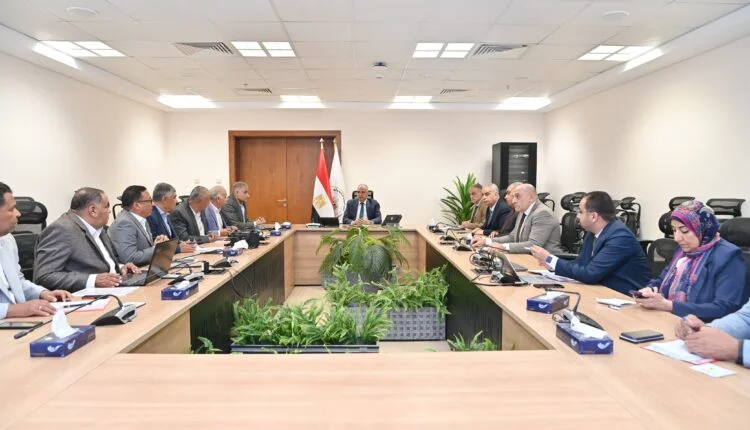
Egypt’s Minister of Water Resources and Irrigation, Dr. Hani Sewilam, has held a high-level meeting with senior ministry officials to assess the country’s water system during the current peak demand season.
The session reviewed key aspects of the national water infrastructure, including the second phase of canal dredging, maintenance work on lifting stations, and the rehabilitation of canal head gates and other hydraulic structures.
Notably, the Central Administration for Watercourse Maintenance has successfully rehabilitated 297 canal head gates, 96 culverts, and 45 regulators using internal resources.
Also highlighted were the efforts of the Central Administration for Water Affairs, which continues to monitor water levels and flows across Egypt’s canal network around the clock.
The body plays a critical role in ensuring balance in water distribution, meeting demand across all sectors—especially in agriculture and drinking water—while taking into account seasonal pressures such as soaring summer temperatures and the increased water needs of coastal cities.
Regular inspections are carried out to ensure rotational water distribution schedules are followed, discharge levels are accurately measured, and any blockages affecting water flow are swiftly addressed.
Particular attention is paid to maintaining safe water levels at intake points for drinking water and power stations, as well as ensuring proper water balances at dams, hydraulic structures, and main basins.
Dr. Sewilam instructed that all malfunctioning units at the mixing stations within the General Directorate of Beheira Irrigation must be repaired no later than 1 November 2025. He also ordered the issuance of a periodic directive setting clear standards for all irrigation departments in governorates regarding canal dredging, order issuance, and oversight, to be monitored by the Central Administration for Watercourse Maintenance.
The Minister further directed both the Irrigation Authority and the Drainage Authority to exclude contractors with poor performance records.
The Mechanical and Electrical Department was tasked with urgently reviewing the electrical infrastructure of all pumping stations nationwide—including cables and supply lines—to ensure safe operation during high temperatures.
A comprehensive report is expected within one week.
Finally, the Technical, Financial, and Administrative Inspection Sector has been assigned to compile and classify all citizen complaints received this summer—ranging from water distribution and canal cleaning to administrative issues—and to compare them with previous years’ data to measure improvements in response time and resolution rates. These findings, along with field inspection reports, will inform the evaluation of irrigation departments and their respective personnel.



